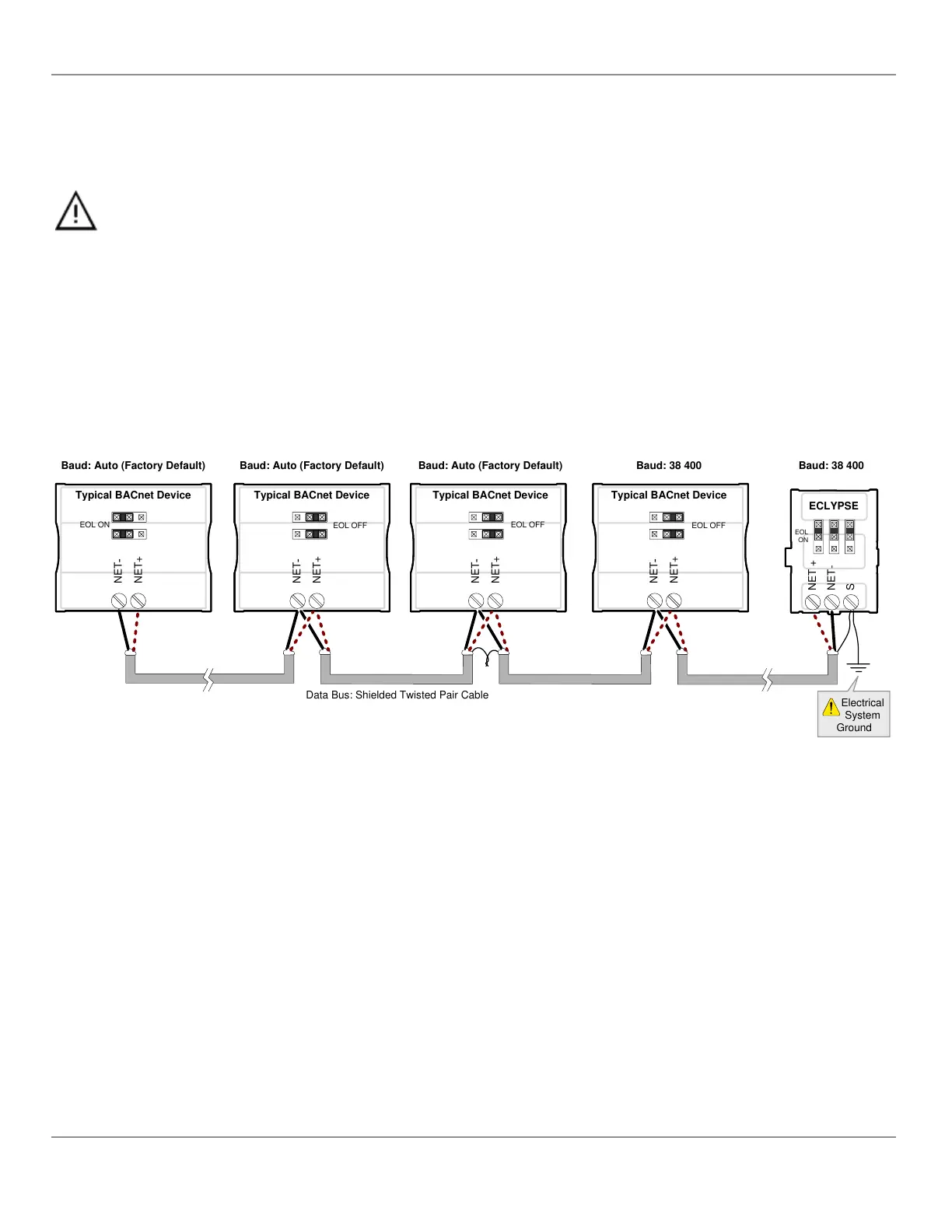Baud Rate
Most devices will have a range of baud rate settings and possibly an AUTO setting that detects the baud rate of other de-
vices transmitting on the data bus and adjusts the baud rate of the device accordingly. Typical baud rates are 9600, 19
200, 38 400, and 76 800. The baud rate setting determines the rate at which data is sent on the BACnet MS/TP data bus.
At 9600 baud, the maximum number of devices is reduced to 25 due to the increased time it takes for token passing between devices.
All devices on the data bus must be set to the same baud rate. Therefore, the chosen baud rate must be supported by all
devices connected to the data bus.
The recommended baud rate for an ECLYPSE Controller is 38 400.
We recommend that you:
£ Set the baud rate of two controllers on a BACnet MS/TP Data Bus Segment to the same baud rate to provide failover
protection.
£ For example, set the baud rate of the ECLYPSE Controller (if equipped) and one other controller to 38 400 baud. If the
ECLYPSE Controller becomes unavailable and there is a power cycle, the BACnet compatible controller will set the
baud rate for the BACnet MS/TP Data Bus.
£ Set all other devices to automatically detect the baud rate, if this option is available.
ECLYPSE
NET-
NET +
S
Typical BACnet Device
NET+
NET-
Typical BACnet Device
NET+
NET-
Typical BACnet Device
NET+
NET-
Typical BACnet Device
NET+
NET-
EOL ON
EOL OFF
EOL OFF
EOL OFF
Data Bus: Shielded Twisted Pair Cable
Electrical
System
Ground
Baud: Auto (Factory Default) Baud: Auto (Factory Default) Baud: Auto (Factory Default) Baud: 38 400 Baud: 38 400
EOL
ON
Figure89: Setting the Baud rate on two Controllers on a BACnet MS/TP Data Bus Segment for Failover Protection
To set the baud rate for:
£ ECLYPSE Controllers, see Network MS/TP Ports.
BACnet MS/TP Communication Data Bus Fundamentals
93
nLight ECLYPSE
